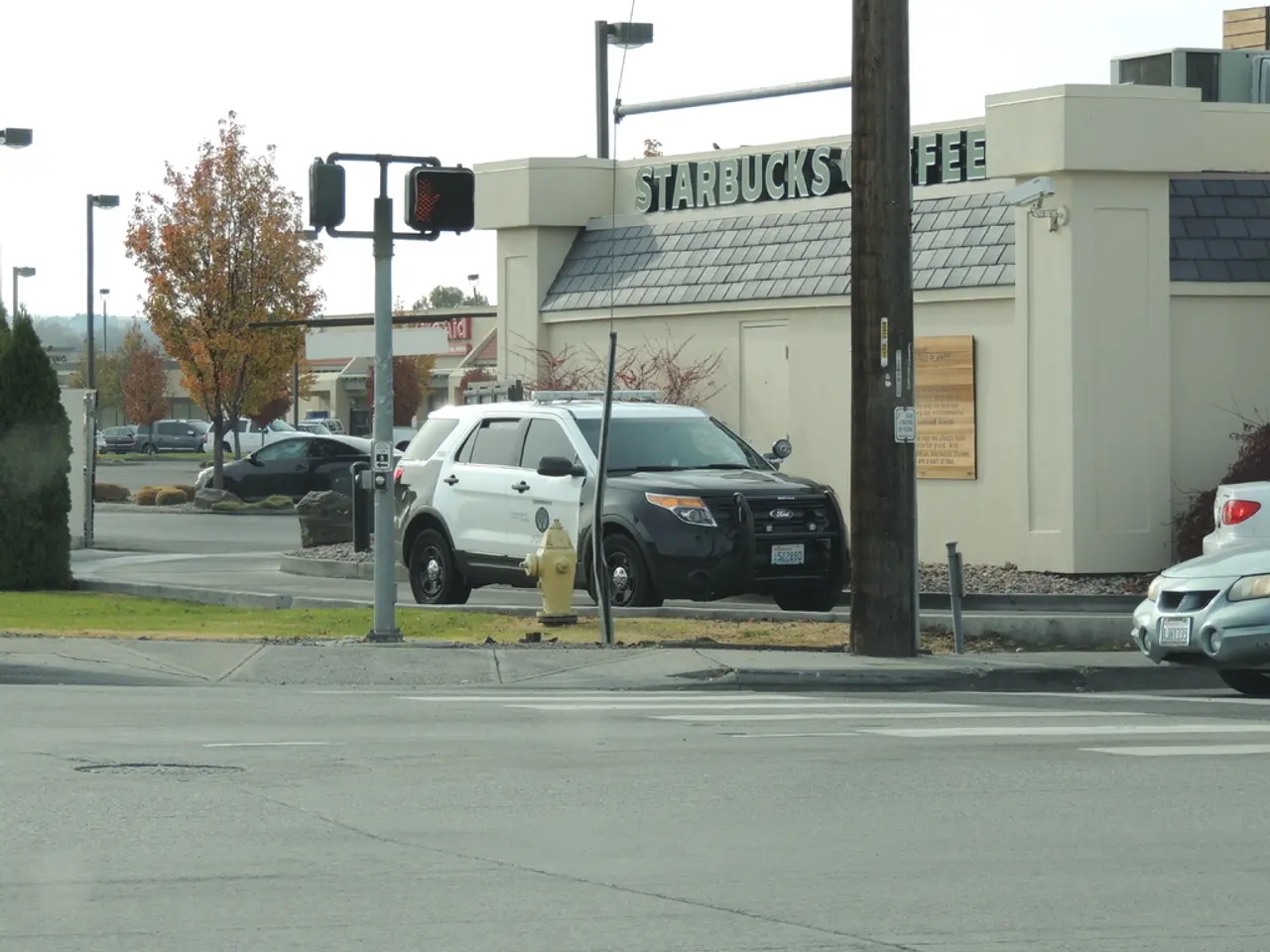Drivers reporting a sense of safety while utilizing autonomous vehicles technology
In a significant stride towards autonomous transportation, the cities of Mannheim and Friedrichshafen have introduced two black-yellow autonomous shuttles on their roads since October 2024. This initiative, known as the "RABus" project, is a collaborative effort between various entities, including ZF Friedrichshafen AG, the Research Institute for Automotive Engineering and Vehicle Engines Stuttgart, and local transportation authorities.
The "RABus" project is centred around autonomous public transportation shuttles, designed for public use and equipped with Level 4 autonomous driving technology. This cutting-edge technology, developed by ZF Friedrichshafen AG, includes sophisticated vehicle control capabilities such as platooning, lane changing, acceleration, and braking, all without human intervention. The AI algorithms critical for autonomous vehicle control were co-developed with Infineon Technologies as part of the EEmotion project, which received co-funding from the German Federal Ministry for Economic Affairs and Climate Action.
The shuttles have proven their worth in various settings, including interurban traffic, city environments, and residential areas. In around 430 test drives, they transported 1600 test passengers and covered 2100 kilometres on public roads. Remarkably, 93 percent of the surveyed passengers reported feeling safe during their rides.
The project, which ran for four and a half years, has marked a milestone in autonomous shuttle development. The successful testing of shuttle vehicles with autonomous capabilities is a testament to Germany's strong support and collaboration between industry and government in advancing autonomous transport solutions.
While Mannheim is known for its various mobility initiatives, specific details about the city's shuttle project were not found. However, Friedrichshafen is a site of key technological development by ZF, the company behind the autonomous shuttle technology.
Besides FKFS, other entities involved in the "RABus" project include Stadtverkehr Friedrichshafen, Regionalverkehr Alb-Bodensee, Rhein-Neckar-Verkehr, the Institute for Traffic Engineering at KIT, and ZF Friedrichshafen AG.
After the end of the project, the test vehicles are still on the road in Friedrichshafen, but without passengers. The "RABus" project underscores Germany's commitment to advancing autonomous transport solutions, particularly led by ZF in Friedrichshafen.
To stay updated on articles and topics related to this project, a subscription to the Staatsanzeiger is required.
The "RABus" project, driven by ZF Friedrichshafen AG, integrates cutting-edge autonomous technology in its shuttles, ensuring they can navigate various settings, including city environments and interurban traffic. This technology, co-developed with Infineon Technologies under the EEmotion project, extends to sophisticated vehicle control aspects such as platooning, lane changing, and braking.
The successful integration of this autonomous technology into the shuttles has been witnessed in Germany, highlighting the synergy between the country's industry, finance, and transportation sectors in the adoption and advancement of technology for autonomous transportation solutions.




